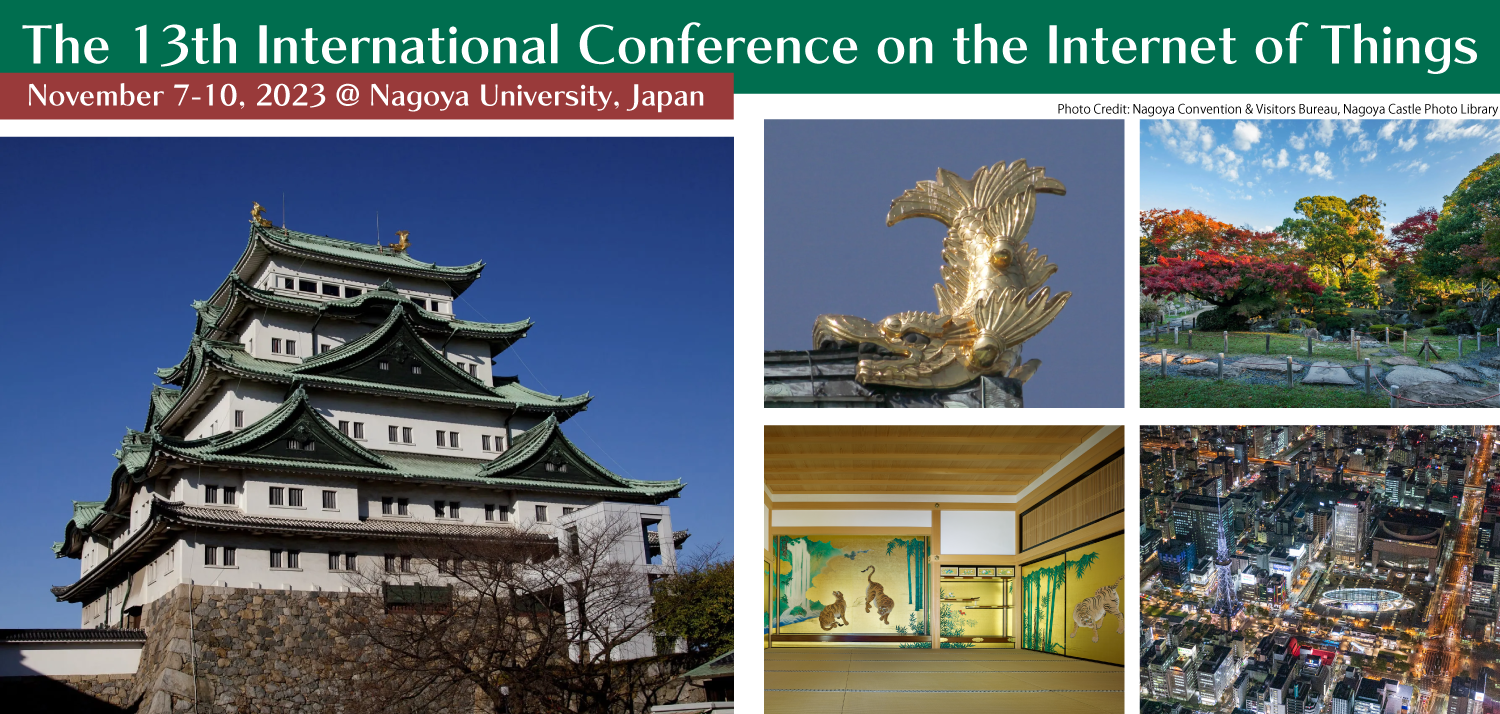Scope and Motivation
The objective of the Posters and Demos sessions is to give researchers in emerging research areas and their applications the opportunity to present early results in order to share experiences and strategies. You are cordially invited to submit Posters and Demos papers reporting on recent findings or other types of innovative or thought-provoking work.
Topics of Interest
Submissions to the Poster and Demo track are encouraged but not limited to the following topics:
Architectures for IoT
- Internet of Things Architecture: Novel information architecture design on field, edge, and cloud devices; object access and networking technology; investigation of technologies that support the mobility of functions and executions across system entities.
- Web Technologies for the IoT: Web-based discovery, search, and service composition to facilitate interactions between devices on the IoT and with users.
- Integration of Physical and Virtual Artifacts and Events: Advanced object identification, classification, and localization
- Description and Discovery of IoT devices, including mobile and moving devices: Ontologies and data models for the description and discovery of mobile systems and applications, including autonomous systems and wearable, urban or sensory computing devices.
Human-Object Interactions (HOI)
- IoT Interactions: Novel methods and techniques for seamless human-to-object interactions, including Augmented Reality and Virtual Reality interactions, Tangible and Gestural Interfaces.
- Novel affordances for IoT and Smart Objects: design of novel affordance for IoT-based smart objects
Object-Object Interactions (OOI)
- Interoperability of IoT Systems: Service discovery and composition, synchronization in distributed systems, overcoming siloization of IoT systems, semantic data description frameworks.
- Object-objects Interactions: methods and protocols for co-operations and coordination among objects, social internet of things, trust among objects
Privacy/security in IoT
- Social Acceptance of IoT Systems: Data security, authentication and authorization. Privacy protection, data sharing technologies (incl. blockchain technology), tampering protection and detection in IoT systems.
- Privacy/Security/Real-Time Fault Correction: Ensure privacy across integrated and wireless IoT systems while also being resilient to attackers.
IoT applications
- Real World Applications of IoT technology: Evaluation of challenges of real world deployments of Smart Cities, Industry 4.0, Industrial Internet, and GS1 implementations, including planned deployments (e.g., in advanced Manufacturing and Logistics).
- Physical World Event Processing and Understanding: Novel data collection, deep learning, reality mining, and prediction methods based on physical world observations. This might include real-time decision making, event processing, and extracting information from large datasets.
- Internet of Things and implications for user modelling: holistic user model based on IoT-enabled data gathering, novel personalized intelligent services and applications based on user model
Important Dates
- Paper submission deadline:
September 20th, 2023 (AoE)September, 27th 2023 (AoE) (Extened) - Notifications: October 11th, 2023 (AoE)
- Camera ready deadline: October 25th, 2023 (AoE)
Submission Guidelines
Researchers interested in presenting a poster/demo should submit an abstract to the Poster and Demo tracks formatted as follows.
- ACM SIGCHI Paper Format (2-column): LaTeX, Word
- Paper Size: A4 paper format
- Paper Title: put [Demo] or [Poster] as prefix of paper title
- Page Limits: 4 pages including references, appendix, notes
- Paper Anonymity: should NOT be anonymized
The abstract should be written in English and contain original material that has not been published or is currently undergoing review elsewhere and must be submitted via our EasyChair submission system (https://easychair.org/conferences/?conf=iot2023), The submission length should not exceed 4 pages and follow the ACM SIGCHI Paper format (2-column). Papers are peer-reviewed by a committee of experts in the IoT field. Accepted papers will be listed on DBLP and published via the ACM Digital Library. Cases of plagiarism or multiple submissions will be subject to disciplinary action as per ACM rules and regulations, and no-shows at the conference will result in an exclusion from the ACM Digital Library.
Your submission should be close to camera-ready and thoroughly copy-edited due to the short selection cycle. Furthermore, due to the very rapid selection process we cannot offer any extensions to the deadline. Submissions are not anonymous and should therefore include all author names, affiliations and contact information and references to external data, software or videos, if applicable. Each application will be evaluated based on the IoT Topics of Interest.
For presenting posters/demos
Poster Display Size
When preparing accepted posters please note that your poster should not exceed the following dimensions: 841×1189 mm portrait format. Other formats will not be supported.
Equipments for Demo
Following equipments will be provided for Demo presentation. (This may be updated later)
- Table (1800mm x 450mm)
- Power supply (100W x 2 port)
- Wi-Fi Network (eduroam)
